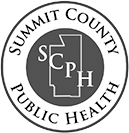How to Prevent Type 2 Diabetes
If you have prediabetes, some changes can be made to reverse and reduce your risk of developing type 2 diabetes. The necessary steps of prevention include losing 5% - 7% of your body weight, eating healthy, and increasing physical activity to at least 150 minutes per week. Making these lifestyle changes can be hard, but there are resources available (such as the Diabetes Prevention Program) that will help you make the necessary changes to living a happier, healthier, diabetes-free life.
What is the Diabetes Prevention Program?
Other Diabetes Management Resources
Free Resources*
-
Living with Type 2 Diabetes – Free Educational Series: Topics include: blood glucose education, coping with diabetes, nutrition basics, grocery shopping, managing stress, and more.
-
ADA’s Diabetes Devices & Technology: This provides you will an overview of the two main types blood glucose meters and options to consider when picking what works best for you.
-
SCPH's Grocery List for Healthy Living: Basic grocery list that can help you make choices that will support a healthier diet.
-
SCPH’s How to Make a Healthy Meal Guide: A simple guide that will help you create a balanced meal, including the appropriate portion sizes.
-
SCPH’s Guide to Measuring Blood Sugar: A guide that covers basic blood sugar measurement and management practices.
* These resources are not intended to be a substitute for professional medical advice, diagnosis, or treatment. Always seek the advice of your physician or other qualified health providers with any questions you may have regarding medical conditions. Never disregard professional medical advice or delay in seeking it because of something you have read on this website. If you think you may have a medical emergency, call your doctor, go to the emergency department, or call 911 immediately.

